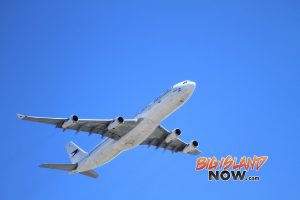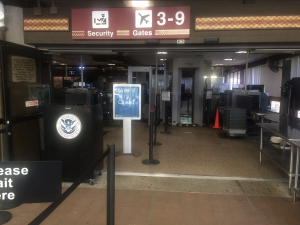How Are TSA Agents Faring Since Government Shutdown?
After this year’s historic government shutdown, Transportation Security Administration (TSA) agents are seeing pay increases. But were the trials they endured enough to motivate change to get them the same Title 5 protections that other federal employees receive?
 Until Sept. 11, 2001, airport security activity focused on potential terror attacks was carried out by private companies and contractors; however, the TSA workforce replaced that system after the Aviation and Transportation Security Act was passed in November 2001.
Until Sept. 11, 2001, airport security activity focused on potential terror attacks was carried out by private companies and contractors; however, the TSA workforce replaced that system after the Aviation and Transportation Security Act was passed in November 2001.
The act created over 50,000 federal jobs, one of the largest increases since World War II.
However, the Aviation and Transportation Security Act also includes a footnote that keeps TSA employees from being eligible for the full range of salary and job benefits that other federal employees enjoy. The bill gave the agency administration the right to “employ, appoint, discipline, terminate and fix the compensation of such a number of individuals as Under Secretary determines to be necessary to carry out the screening functions.”
For that reason, TSA workers earn much less than other federal employees.
Most TSA screeners start out at $25,000 a year—less than $15 an hour. According to the Bureau of Labor Statistics, the mean salary for TSA agents is $40,160 ($19.31 per hour).
In addition, using sick leave is a punishable offense for TSA screeners. They can be fired or disciplined for having medical conditions, whether or not those conditions even affect their ability to work.
Also, they are restricted to only being allowed to appeal to the person who fired them in regard to the cause of their termination because, unlike most federal workers, they are not classified under Title 5.
 In response to whether full Title 5 rights for TSA screeners being considered since the shutdown, Lorie Dankers, spokeswoman and public affairs manager for the TSA, said, “Currently, there is a joint management and union working group that has convened to recommend reforms to the TSA personnel management system.”
In response to whether full Title 5 rights for TSA screeners being considered since the shutdown, Lorie Dankers, spokeswoman and public affairs manager for the TSA, said, “Currently, there is a joint management and union working group that has convened to recommend reforms to the TSA personnel management system.”
Although TSA screeners belong to a union and to the American Federation of Government Employees, they lack the same collective bargaining rights afforded to other federal workers.
John Pistole, the previous TSA administrator appointed by President Barack Obama, helped TSA workers gain the right to collective bargaining on certain matters after the International Labor Organization ruled that by prohibiting TSA agents from engaging in collective bargaining with the US government was in violation of international labor law.
The Federal Labor Relations Board then approved a petition to allow TSA screeners to elect an exclusive representative. However, most federal employees covered under Title 5 still enjoy a much wider range of collective bargaining rights.
Still, today, Transportation Security Administration employees are reporting on their exit surveys that they are unhappy with their jobs due to dissatisfaction with career opportunities and concerns over the communication between management, and lack of competence of management staff, according to the inspector general for the US Department of Homeland Security.
Given these systemic issues, it is no surprise that when TSA agents nationwide missed two salary payments, stories of TSA agents in Hawai‘i who were forced to live in their cars made national news.
Since then, the TSA has made efforts to fill positions that were left empty after this year’s historically long government shutdown.
Recruitment efforts were made to fill positions at the Kona International Airport on the Big Island, the Daniel K. Inouye International Airport on O‘ahu, Kahului Airport on Maui and Līhue Airport in Kaua‘i.
Applicants were offered starting pay ranging from $17.81 on O‘ahu to $21.82 on Maui and Kaua‘i.
In addition, Dankers told Big Island Now that since the government shutdown, “All TSA employees recently received a 1.9% pay increase. About 53,000 employees, saw this increase and received a lump-sum retroactive payment (retroactive to Jan. 6, 2019), in their April 22, 2019, paycheck.”
Dankers also shared that, “When payments were not made, TSA Administrator David Pekoske approved monetary recognition for employees of the screening workforce in the form of two On-the-Spot awards. The first was provided in recognition of outstanding efforts made to ensure the security of aviation transportation and passenger safety during the 2018 holiday travel season. The second was for exceptional dedication in remaining focused on our security mission during the shutdown. Each SPOT award was in the amount of $250 and each member of the screening workforce on board as of Dec. 22, [2018] received a net total of $500.”
Despite setbacks from the government shutdown, TSA has managed to maintain shorter-than-average wait lines, even when a record number of more than 108 million travelers flew during spring break.
Dankers said that 97.2% of all passengers “waited less than 20 minutes at the checkpoint and 92.4% of passengers who were in a TSA Pre✓ lane waited less than 5 minutes.”










